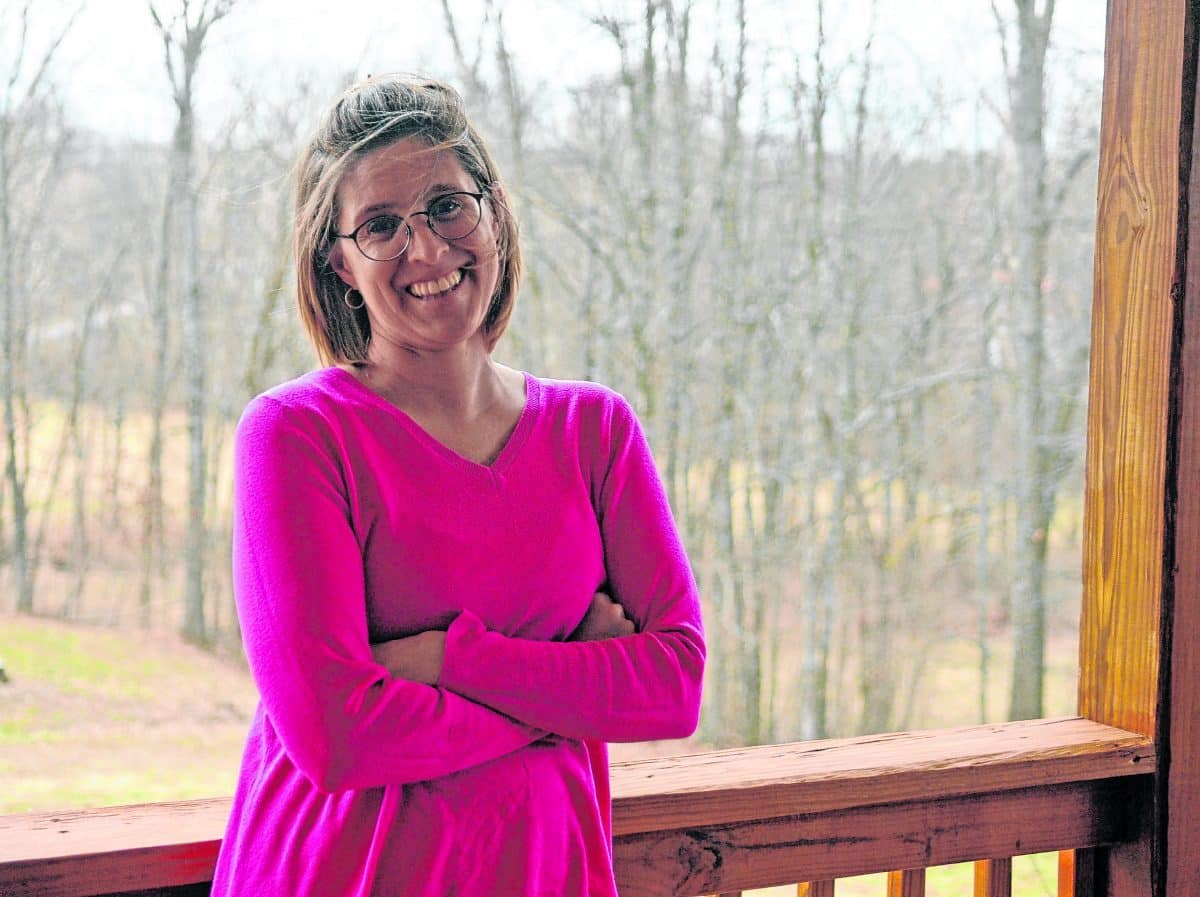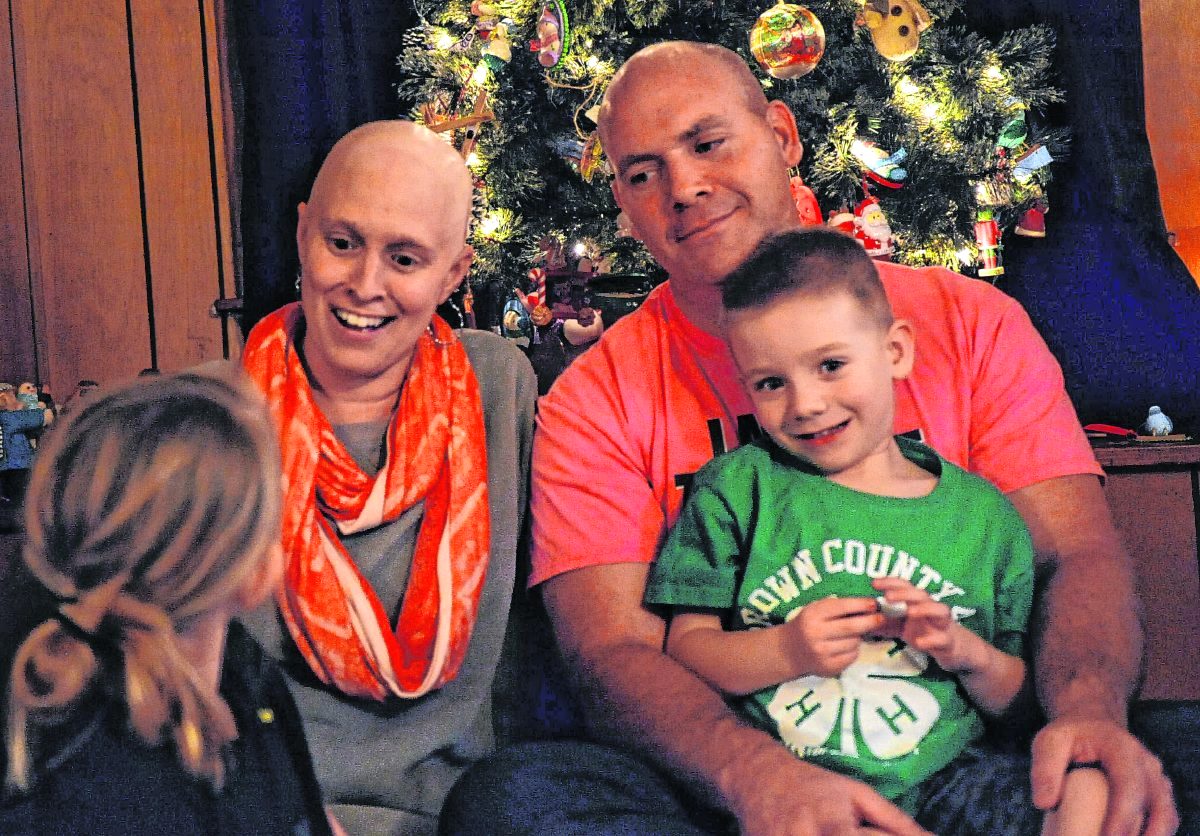The evening of March 23, 2020, Brown County received news of its first case of COVID-19. News of the second case arrived March 27 and the third on March 29.
Nine hundred fifty more would follow in the year to come, with 40 of those cases ending in death.
For those of us the virus didn’t personally reach — and regardless of how we felt about it — it still left a big impact on our ability to live a “normal” life.
We asked our Facebook readers to volunteer to have some “super-honest conversations” about how their lives have been altered in the past year. This story below is the first in a three-week series titled “Our year of flux.”
Among the interviews we’ve done so far, we feel like we don’t yet have the important perspectives of teens/college students, or people working in a service industry, such as a restaurant or hotel. So, if that description fits you, and you’d like to share your story, please send a message to [email protected] or give us a call at 812-988-2221.
They didn’t know it at the time, but 2019 prepped the Bohbrinks for 2020.
A year before most anyone else was self-isolating, wearing masks, washing their hands more often and using sanitizer, Jenise Bohbrink and family were well-versed in all these practices. In 2018, Jenise was fighting a “rare and aggressive” form of non-Hodgkin’s lymphoma. In 2019, she had her immune system shut down and then rebuilt with new stem cells through a transplant.
“So, that element of the pandemic, for us, was not a big deal,” she said about taking precautions, like masks. “And it was hard to understand why people were fighting against it.”
When the pandemic hit Indiana last March, she hadn’t yet re-received all the vaccinations a healthy 38-year-old should have had up to that point in her life. That left her more susceptible to illness than other people her age.

On a low-high scale of 1 to 5, she would have rated her pandemic concern at that point at a 4.
Yet, her immediate worry wasn’t for her life, but for her family. It was spring break when the news started to spread and her kids were in northern Indiana with her parents. She needed her babies with her.
“Of course, my parents thought I was silly,” she said. “But in hindsight, I’m very glad we did that.”
Brent, an Indiana conservation officer, continued reporting to work, masked and in person, but didn’t take unnecessary risks.
Jenise’s office, the Brown County Community Foundation, closed to the public. All employees worked from home except for days they’d spend in the office on rotation, one at a time.
School for Averi, then 7, and Owen, then 5, went online or on paper until the end of the 2019-20 school year, and then online again for several more days this school year because of COVID cases or quarantines. That left Mommy to transform into teacher.
“I’ve always appreciated teachers, but they’re saints. They should be sainted, all of them,” Jenise said.
Even on paper packets, Mom and daughter butted heads. Often, Brent would handle that when he got home from work, and “to this day, she prefers sitting down with Daddy to do stuff because Mommy’s the dumbest person on Earth.”
Jenise’s work time would often be at night, once the kids were asleep.
“Did I drink more? Yes,” she said. “It was a case of just needing something, just having an element that put me into being an adult and kind of relaxed things.”
She picked up the free lunches the school offered for convenience and visited drive-through pop-up food pantries a few times — just to help take some pressure off of having to go into a store or figure out what to fix for lunch.
Thankfully, their family income wasn’t hit. “I see so many that were affected,” she said, “so I feel kind of guilty saying that I wasn’t.”
As a family, they rediscovered games like Uno and Sorry.
They spent more time fishing in their pond — all together, not just Brent and the kids while Jenise stayed home, like normal. The kids had accused her of not knowing how to fish, but they had just never seen her do it or known how much better at it she was than them.
“We spent a lot more time together, and it was pretty fun — pretty hairy, pretty annoying, but fun. It was enjoyable. We were forced to not be distracted by the outside world, distracted by work, distracted by sports — I don’t want to say ‘distracted,’ but distracted by church — all those other pulls,” she said.
At first, she consumed all the news she could about the pandemic, but it got to be too much, all the constant changes, all the unknown. Not having control of things was an anxiety trigger. But that, too, she was familiar with because of her cancer experience.
“I was forced to relax and just let things happen and not be anxious, not be, like, needing to have control over everything,” she said. “… Because of this transplant, I had already simmered down, like, ‘You know what? Things are out of my control; I’ve just got to roll with it.'”
Ice cream helped, too. And baking, lots of cookies from scratch.
And sitting on the dock, or floating on a raft watching the kids swim or fish, just letting the water take her where it would.

They haven’t gone to church in person in a year, or visited their families in person more than twice. They didn’t even Zoom on Christmas, not wanting to deal with the chaos of having 25 family members on the screen or seeing everything happening without them.
“Knowing they were all getting together, that was hard,” she said.
“We’re OK with our Brown County germs. We didn’t want — we were afraid, maybe — fearful of the Allen County, the northeast Indiana germs, and the Hendricks County germs. We didn’t want to take anything up there, nor did we want to get anything from them and bring it back. My family all interacted with each other because they all live so close to each other, and they were in each other’s germs; we weren’t.
“As we put it, ‘It could put Mommy back in the hospital, and we don’t want Mommy to go back to the hospital. We have to be careful.'”
She and Brent are now vaccinated. They’ve passed their two-week inoculation period which the Centers for Disease Control says is needed to build immunity. Technically, they could resume normal life: going to church, visiting people, seeing family.
She’s planning to wait ’til Easter. The temptation is still too great to hug all the people she cares about.
“I’m still fearful,” she said. “… What if we could be carrying it and give it to someone else? I don’t want to cause somebody else to get sick. … Call me a sheep or whatever … but I think we will still be cautious. We will still wear masks in public settings and then be washing our hands and using hand sanitizer.”

